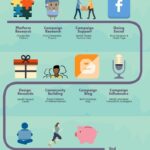Guest post by: Christopher Ryan CEO or Fusion Marketing Partners and Center for Business Modeling.
Chris is a SCORE colleague and a marketing and sales maven. We are super fans of each other’s work. The following post was published by Chris on his blog in May of 2018 and is chock full of valuable advice.
I just got off the phone with a B2B CEO who wanted to build his B2B branding messaging around the concept of how his products and services are better than his competitors’ (e.g., “We have better customer service”). It took a bit of explaining, but I believe he is now (rightly) focused on branding his company in a way that is different and unique and not more of the same.
As the late Jerry Garcia, Grateful Dead lead guitarist and de facto leader, stated, “It’s not enough to be the best at what you do. You must be perceived as the only one who does what you do.”
This is the essence of what I am talking about. There are thousands, perhaps tens of thousands, of rock bands, but only one Grateful Dead. They did not strive to be better than every other band — their mission was to be totally different. And they certainly succeeded, as did their unique counterparts like The Rolling Stones, Bob Dylan, Bruce Springsteen, The Beatles and many others.
By the way, the Grateful Dead differentiated themselves from a branding perspective and throughout their entire business model. Not only did the band sell tickets directly to fans (as opposed to going through a third-party vendor), but they also included fans as part of their concerts, using the platform as a way to build a community instead of boosting sales. Fans were encouraged to bring their own instruments to the shows, and the musicians would give away show recordings as a keepsake, strengthening their loyal fan base.
From a marketer’s perspective, I appreciate how much a pioneer the band was in areas like social engagement and direct marketing. They were including messages inside their albums (actual vinyl records) as far back as the early 1970s. Long before the days of email, they were asking fans to supply their names and addresses to be kept informed of concerts and band activities. This is a terrific example of database marketing: Collect permission to stay in touch (via opt-in) and communicate relevant messages to increase the value of each customer. In this case, it was music buyers and concert attendees, but for many of us, it could be software users, equipment buyers or whatever it is we are selling.
How To Differentiate Your Brand
One important caveat: Being different in your B2B branding is not enough. To continue the rock band analogy, there are plenty of bands that can leave you saying, “That was different.” The relevant point is, are they different in a way that’s interesting, compelling and makes you want to come back for more? Do they have a big idea or just a slightly different twist on an old idea?
Your difference needs to be expressed in your unique brand promise — what you promise people they will receive when they do business with you and what you give them in terms of product, service and customer experience. The more specific you can make this, the better. One well-known example of a company that does this well is Salesforce. The name is great, the product is good, but what (in my opinion) catapulted them to the top of the cloud software food chain is brilliant branding.
Salesforce aggressively promoted themselves as the software alternative and held “anti-software” rallies at a rival’s user conference. Even as a tiny company, they acted liked leaders and soon became the hottest company in the SaaS/cloud space. Great B2B branding indeed!
Here’s how you can out-brand your competitors:
- Like Salesforce and the Grateful Dead, find and stake out your unique space.
- Consider a new pricing or delivery model and make this part of your brand promise. Salesforce (on the B2B side) and Uber (on the B2C side) are good examples of this.
- Be human. A great deal of business is fairly impersonal, but smart companies realize that the people at the top are part of their brand. Leaders like Bill Gates, Elon Musk, Warren Buffet and the late Steve Jobs realized that their humanness, including vulnerabilities, was a great asset to their brands and bottom lines.
Related: Branding Your Personality for Profit - Tell a good story. A good story can be about your company, your leaders or your customers and their interests. HubSpot does this well with its rich array of success stories and informative content.
Being different is often (but not always) objective while being better is usually very subjective. Which band is better: The Rolling Stones or the Grateful Dead? A subjective question to be sure. Actually, who cares, since both are wildly successful in their own genres? Likewise, you want your company to be the best version of itself, not a slightly better version of another company.
Related: How to Transform your Clone Business and Stand Out
One good thing about being different is that it helps those that are not good prospects disqualify themselves. If you are very clear about what you do well and not so well, you will need to have fewer conversations that waste your time. And the conversations you do have will be more productive. Your close rate will go up and your sales cycle will go down — two great B2B marketing metrics.
Here is the test of whether your B2B branding message is truly unique: If there are several other companies that can make the same claims as you, then you are not unique. You may be good, you may be better, you may even be the best. But that is not the same as being the only one who does what you do. And as learned from a famous rock band, that is exactly where you need to be.












